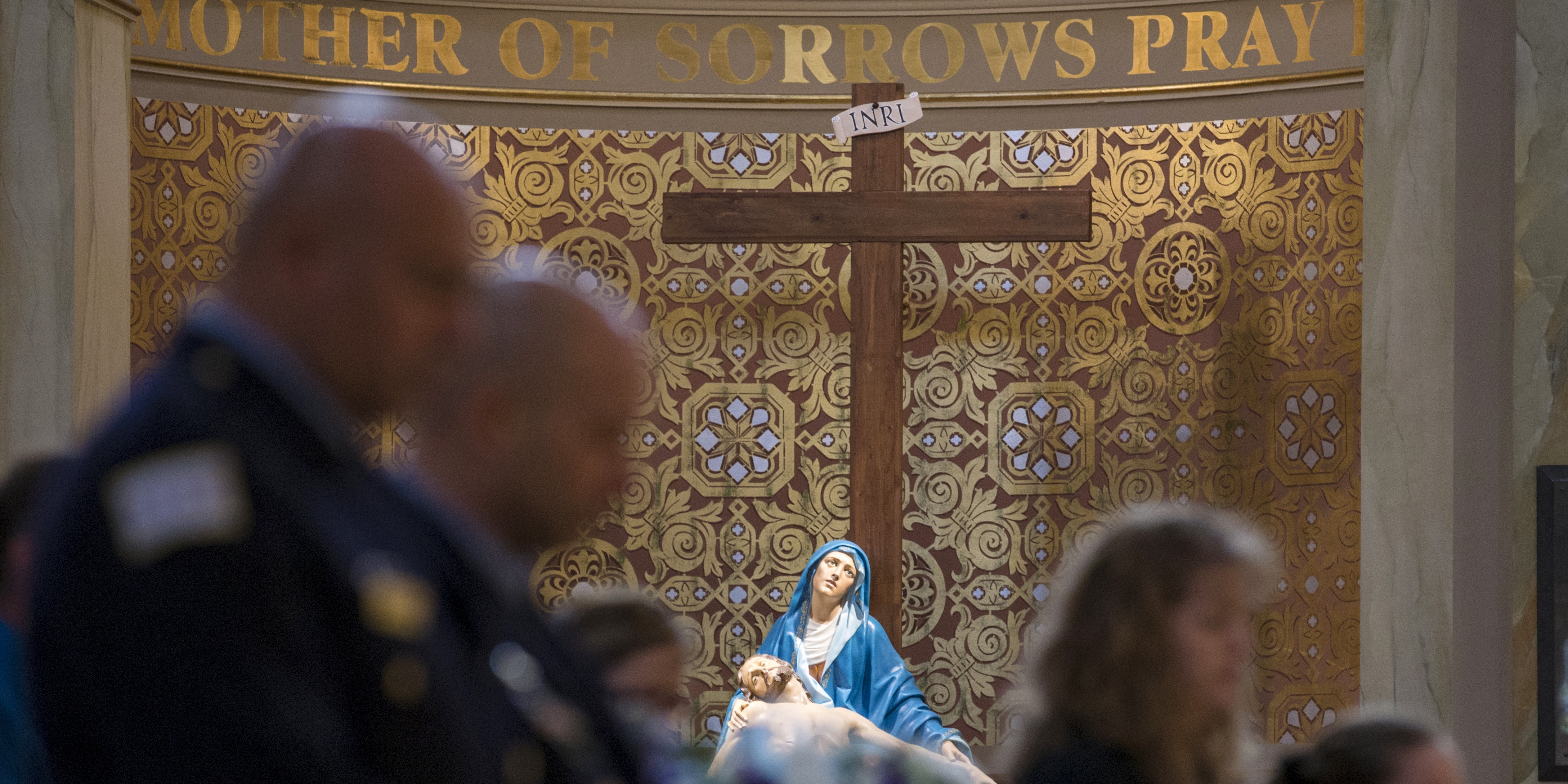- A grand jury in Pennsylvania released a 1,300-word report Tuesday detailing allegations about the Roman Catholic Church’s decades-long cover-up of sexual abuse of nearly 1,000 children by 300 “predator priests.”
- The report details what investigators described in the report as a “a playbook for concealing the truth” that was used by officials to cover up 70 years of abuse of children by 300 Roman Catholic priests.
- Across files from six dioceses, special agents identified several patterns using special language and illegitimate investigations to downplay accusations and protect the priests.
A grand jury in Pennsylvania released a 1,300-word report Tuesday detailing allegations that the Roman Catholic Church spent decades covering up sexual abuse claims against 300 “predator priests” who are said to have targeted nearly 1,000 children.
The report covers 70 years of alleged abuse and the lengths that church officials went to cover up the accusations, using what investigators described in the report as a “a playbook for concealing the truth.”
Special agents identified several common practices across the files from the six dioceses they investigated that kept the accusations within the church, and avoided recording any criminal identifications in the documents.
The report lays out what it said were mechanisms for shielding accused priests from legitimate punishment, including:
- Using euphemisms for the sexual assaults. "Never say 'rape'; say 'inappropriate contact' or 'boundary issues.'"
- Choosing fellow clergy members, not unbiased professionals to "ask inadequate questions and then make credibility determinations about the colleagues with whom they live and work."
- "For an appearance of integrity, send priests for 'evaluation' at church -run psychiatric treatment centers," as the priest's diagnosis would be mostly based on his own "'self -reports,' regardless of whether the priest had actually engaged in sexual contact with a child."
- To completely conceal any wrongdoing even if the priest is removed, "don't say why. Tell his parishioners that he is on "sick leave," or suffering from 'nervous exhaustion.' Or say nothing at all."
- "Even if a priest is raping children, keep providing him housing and living expenses, although he may be using these resources to facilitate more sexual assaults."
- If a predator's conduct becomes known to the community, don't remove him from the priesthood to ensure that no more children will be victimized. Instead, transfer him to a new location where no one will know he is a child abuser."
- "Finally and above all, don't tell the police," though sexual abuse of minors is a universally punishable crime, "don't treat it that way; handle it like a personnel matter, 'in house,'" the text said, according to the report.
The report goes on to list 300 cases of individual priests from Harrisburg, Pittsburgh, Allentown, Scranton, Erie and Greensburg dioceses with names and graphic details from their accusers.
Some of the accused priests protested the report after it was announced, saying it would unfairly damage their reputations. Some information in the document is redacted, but the court released it in full.
For decades, the Catholic Church has been hit with sexual abuse allegations in parishes worldwide. Pope Francis has recently accepted a number of resignations from church officials in Chile and Argentina as a result.
The Pope admitted in 2017 the Catholic Church was "a bit late" in realizing the damage done by predatory priests who had been accused of raping and molesting children, and was only made worse by the decades-long practice of moving pedophiles around rather than punishing and removing them.
Read the full report below:

